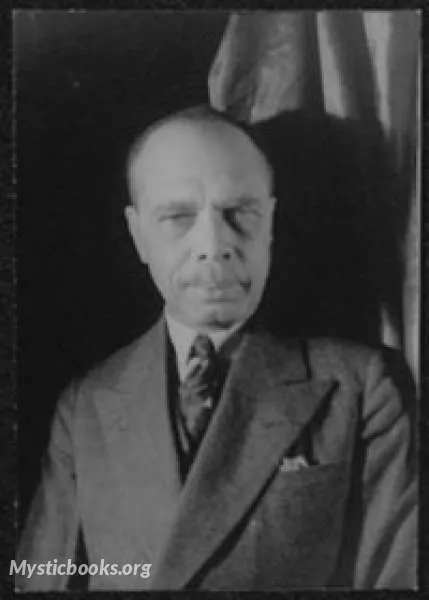
Timeline
Title
Country/Nationality
James Weldon Johnson
James Weldon Johnson was an American writer and civil rights activist. He was married to civil rights activist Grace Nail Johnson. Johnson was a leader of the National Association for the Advancement of Colored People (NAACP), where he started working in 1917. In 1920, he was the first African American to be chosen as executive secretary of the organization, effectively the operating officer. He served in that position from 1920 to 1930. Johnson established his reputation as a writer, and was known during the Harlem Renaissance for his poems, novel, and anthologies collecting both poems and spirituals of black culture. He wrote the lyrics for "Lift Every Voice and Sing", which later became known as the Negro National Anthem.
Johnson was appointed under President Theodore Roosevelt as U.S. consul in Venezuela and Nicaragua for most of the period from 1906 to 1913. In 1934 he was the first African-American professor to be hired at New York University. Later in life, he was a professor of creative literature and writing at Fisk University, a historically black university.
Johnson was born in 1871 in Jacksonville, Florida, the son of Helen Louise Dillet, a native of Nassau, Bahamas, and James Johnson. His maternal great-grandmother, Hester Argo, had escaped from Saint-Domingue (today Haiti) during the revolutionary upheaval in 1802, along with her three young children, including James's grandfather Stephen Dillet (1797–1880). Although originally headed to Cuba, their boat was intercepted by privateers and they were taken to Nassau, where they permanently settled. In 1833, Stephen Dillet became the first man of color to win election to the Bahamian legislature.
James's brother John Rosamond Johnson became a composer. The boys were first educated by their mother, a musician and a public-school teacher, before attending Edwin M. Stanton School. Their mother imparted to them her great love and knowledge of English literature and the European tradition in music. At the age of 16, Johnson enrolled at Atlanta University, a historically black college, from which he graduated in 1894. In addition to his studies for the bachelor's degree, he also completed some graduate coursework.
The achievement of his father, a preacher, and the headwaiter at the St. James Hotel, a luxury establishment built when Jacksonville was one of Florida's first winter resort destinations, inspired young James to pursue a professional career. Molded by the classical education for which Atlanta University was known, Johnson regarded his academic training as a trust. He knew he was expected to devote himself to helping black people advance. Johnson was a prominent member of Phi Beta Sigma fraternity.
Johnson and his brother Rosamond moved to New York City as young men, joining the Great Migration out of the South in the first half of the 20th century. They collaborated on songwriting and achieved some success on Broadway in the early 1900s.
Over the next 40 years, Johnson served in several public capacities, working in education, the diplomatic corps, and civil rights activism. In 1904, he participated in Theodore Roosevelt's successful presidential campaign. After becoming president, Roosevelt appointed Johnson as United States consul at Puerto Cabello, Venezuela, where he served from 1906 to 1908, and then to Nicaragua, where he served from 1909 to 1913.
In 1910, Johnson married Grace Nail, whom he had met in New York City several years earlier while he was working as a songwriter. A cultured and well-educated New Yorker, Grace Nail Johnson later collaborated with her husband on a screenwriting project.
After their return to New York from Nicaragua, Johnson became increasingly involved in the Harlem Renaissance, a great flourishing of art and writing. He wrote his own poetry and supported work by others, also compiling and publishing anthologies of spirituals and poetry. Owing to his influence and his innovative poetry, Johnson became a leading voice in the Harlem Renaissance of the 1920s.
He became involved in civil rights activism, especially the campaign to pass the federal Dyer Anti-Lynching Bill, as Southern states did not prosecute perpetrators. He was a speaker at the 1919 National Conference on Lynching. Starting as a field secretary for the NAACP in 1917, Johnson rose to become one of the most successful officials in the organization. He traveled to Memphis, Tennessee, for example, to investigate a brutal lynching that was witnessed by thousands. His report on the carnival-like atmosphere surrounding the burning-to-death of Ell Persons was published nationally as a supplement to the July 1917 issue of the NAACP's Crisis magazine, and during his visit there he chartered the Memphis chapter of the NAACP. His 1920 report about "the economic corruption, forced labor, press censorship, racial segregation, and wanton violence introduced to Haiti by the U.S. occupation encouraged numerous African Americans to flood the State Department and the offices of Republican Party officials with letters" calling for an end to the abuses and to remove troops. The United States finally ended its occupation of Haiti in 1934, long after the threat of Germany in the area had been ended by its defeat in the First World War.
Appointed in 1920 as the first executive secretary of the NAACP, Johnson helped increase membership and extended the movement's reach by organizing numerous new chapters in the South. During this period, the NAACP was mounting frequent legal challenges to the Southern states' disenfranchisement of African Americans, which had been established at the turn of the century by such legal devices as poll taxes, literacy tests, and white primaries.
In 1920, Johnson was chosen as the first black executive secretary of the NAACP, effectively the operating officer position. He served in this role through 1930. He lobbied for the Dyer Anti-Lynching Bill of 1921, which was passed easily by the House, but repeatedly defeated by the white Southern bloc in the Senate.
Throughout the 1920s, Johnson supported and promoted the Harlem Renaissance, trying to help young black authors to get published. Shortly before his death in 1938, Johnson supported efforts by Ignatz Waghalter, a Polish-Jewish composer who had escaped the Nazis of Germany, to establish a classical orchestra of African-American musicians.
Johnson died in 1938 while vacationing in Wiscasset, Maine, when the car his wife was driving was hit by a train. His funeral in Harlem was attended by more than 2,000 people. Johnson's ashes are interred at Green-Wood Cemetery in Brooklyn, New York.
Books by James Weldon Johnson
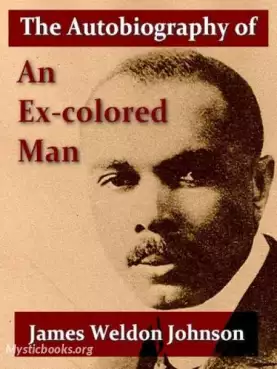
The Autobiography of an Ex-Colored Man
The Autobiography of an Ex-Colored Man by James Weldon Johnson is the fictional account of a young biracial man, referred to only as the "Ex-Colored Man," living in post-Reconstruction era America in the late nineteenth and early twentieth centuries....
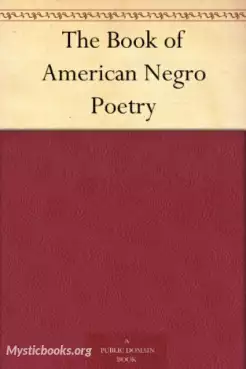
The Book of American Negro Poetry
The Book of American Negro Poetry, curated by James Weldon Johnson, is a landmark anthology that gathers some of the most influential African-American poets of the early 20th century. This collection, first published in 1922, captures the evolving ar...
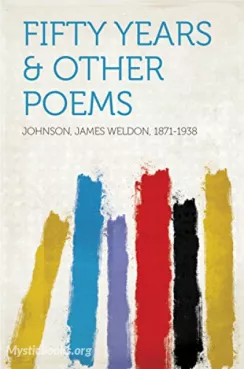
Fifty Years & Other Poems
Fifty years of history, culture, and experience are captured in these poems by James Weldon Johnson, a pioneering African American writer and activist. Fifty Years & Other Poems is a collection of poems that spans Johnson's entire career, from his e...
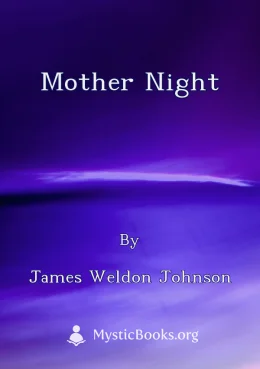
Mother Night
LibriVox volunteers bring you fifteen different readings of Mother Night, by James Weldon Johnson. This weekly poetry project (for the week of Feb 26, 2006) was selected to celebrate Black History Month.(Summary by Annie Coleman)

O Southland!
In celebration of Juneteenth, LibriVox volunteers bring you five different versions of O Southland!, by James Weldon Johnson. This was the weekly poetry project for 18 June 2006.(Summary by Annie Coleman)

Sunset in the Tropics
The poems in this collection explore the beauty and diversity of the tropics, from the lush landscapes to the vibrant cultures. Johnson's vivid imagery and lyrical language bring the tropics to life, capturing the sights, sounds, and smells of this v...

Word of an Engineer
"Word of an Engineer: A Life of James Weldon Johnson," is a comprehensive biography of James Weldon Johnson, a prominent African American figure in the early 20th century. The book explores his multifaceted career as an author, poet, educator, lawyer...
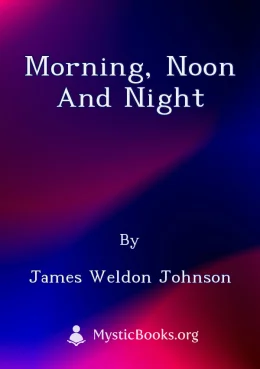
Morning, Noon and Night
''Morning, Noon and Night'' is a collection of poetry by James Weldon Johnson, a prominent figure in the Harlem Renaissance. The poems reflect on themes of African American identity, race relations, and the search for meaning in a complex world. John...

Deep In The Quiet Wood
This book, written by James Weldon Johnson, explores themes of African American identity, cultural heritage, and the relationship between nature and human experience. Through a collection of poems, it delves into the rich tapestry of Black folklore,...
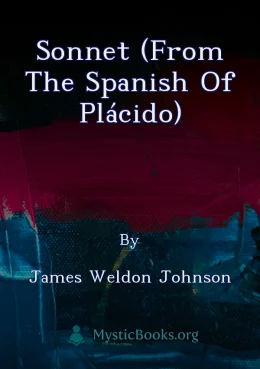
Sonnet (From the Spanish of Plácido)
This book is a biography of James Weldon Johnson, an American author, educator, lawyer, diplomat, songwriter, and civil rights activist. Johnson is best remembered for his leadership of the National Association for the Advancement of Colored People (...
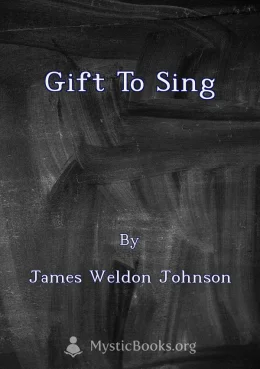
Gift To Sing
“The Gift to Sing” is a collection of poems by James Weldon Johnson, a prominent figure of the Harlem Renaissance. The poems explore themes of African American identity, culture, and history, often drawing inspiration from traditional spirituals and...